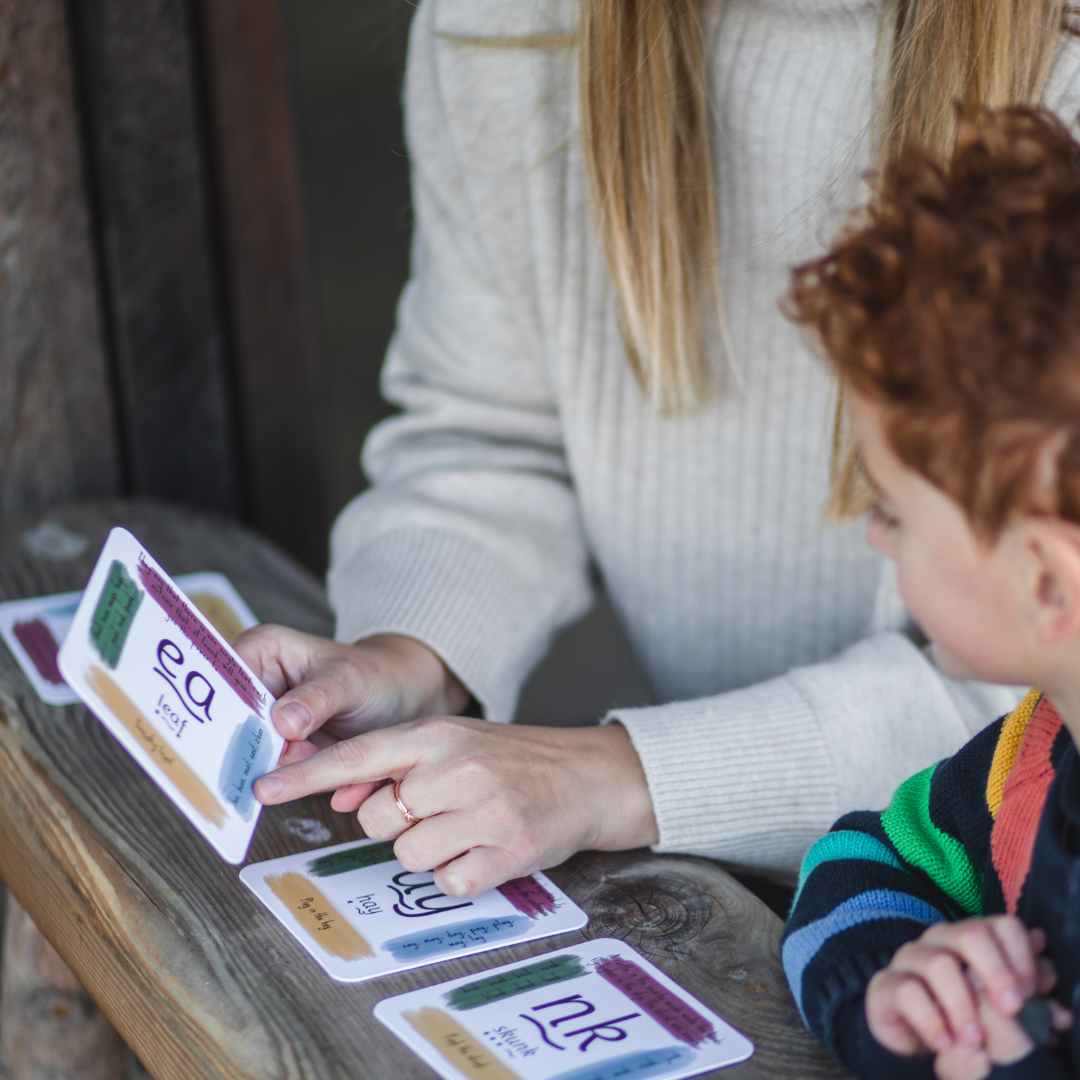Tricky Phonics Explained.
Some sounds in words can be quite tricky to understand and pronounce. We'll walk you through the tricky bits right here:
'y' at the end of a word.
When you find the letter y at the end of a word it can have a long 'e' sound like cherry/berry or a long 'i' sound like fry/cry. You normally find the word ending in 'y'will have the long 'e' sound if it has two syllables ba-by / la-zy .
Doubled Consonants.
Our sets include 'zz'(Puzzle) , 'ss'(Chess) 'ff' (Muffin) and 'll'(Well) but there are more doubled consonants used in words that are slightly less common such as 'rr', 'bb' 'dd' 'pp' and 'gg'. They all sound the same as their single letter versions - not too tricky really!
'le' and 'se' at the end of a word.
Turtle ,thistle and puzzle pop up in our set two cards as example words, as well as horse, and we place a wiggle under the le/se. 'le' is known as consonant-le'; the 'e' element is silent and only the consonant and the 'l' that follows are heard. When decoding (sounding out), 'le' should be treated like the 'l'phoneme (sound) and 'se' like the 's' phoneme or the 'z' phoneme depending on the word and your accent.
The different 'ea' sounds.
In Set 2 we introduce the long 'e'vowel sound 'ea' alongside the word 'leaf'. This version of the 'ea' sound is the most common but the short 'e' vowel sound 'ea' as in treasure also crops up pretty frequently as does the long 'a' vowel sound in words like 'steak'.

